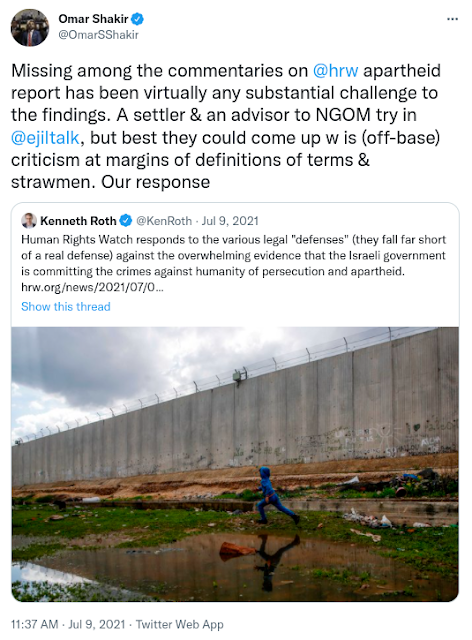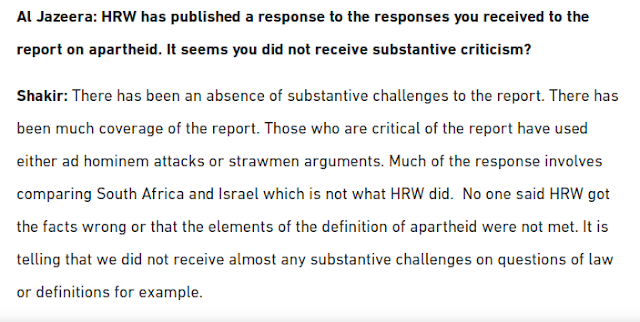With the ongoing talk about apartheid, I was reminded of a report that targeted Israel for war crimes.
Not the B’tselem report.
Not the HRW report.
Not even the Amnesty International report.
Instead, I was reminded of the 2009 Goldstone Report.
Of all the issues and topics that were going back and forth back then, one thing that stood out in my mind was the denial — the denial from one of the judges on the Goldstone commission.
Desmond Travers, a retired Irish Army colonel, was part of the United Nations Fact-Finding Mission on the Gaza Conflict. Whatever else Travers may have contributed to the group, one thing he seemed to make it his job to do was offer implausible deniability.
Yes, implausible deniability
In an interview at the time with the Middle East Monitor, Desmond Travers came up with the following response to Hanan Chehata:
So far, no substantive critique of the report has been received?
Well, one of the easiest ways to rebut a criticism is to deny that it was ever made (this was back in the day, before it was fashionable to rebut criticism by accusing the other person of being a racist).
Among the papers and articles that came out rebutting the Goldstone Report on issues of law, fact and bias were those from:
o The Israeli government
o Alan Dershowitz
o David Matas (international human rights lawyer)
o Richard Landes (historian and author)
o Yaacov Lozowick (historian)
o CAMERA
o Intelligence and Terrorism Resource Center
[As well as EoZ.]
But you would never know it from Travers, who made it his business to assure everyone that there was nothing to see — no criticism, no errors of fact and no controversy in the definition and application of the law.
Fast forward to 2021.
When the HRW report came out, the group apparently adopted the same strategy of denying that anyone could come up with a credible critique of what they wrote. On July 9, 2021, Omar Shakir, HRW’s Israel and Palestine Director, tweeted:
One week later, Shakir repeated his claim in an interview with Al Jazeera:
Strawmen?
Anne Herzberg, a legal advisor for NGO Monitor, notes the irony in Shakir’s use of the term:
Moreover, the invocation of “strawmen” is ironic, given that neither Shakir nor Roth provided any identification of who or what those strawmen might be, in order to avoid having to refute the substantive arguments.
More to the point, Shakir claims that he did not receive “almost any” counter-arguments on questions of law or definitions.
He is ignoring Eugene Kontorovich’s paper, which oddly enough does address the issues of both law and definitions that Shakir claims are lacking — as well as addressing errors of fact. Kontorovich has a shorter post as well.
CAMERA is apparently guilty of the kind of ad hominem attacks that Shakir condemns. They note that Joe Stork, HRW’s Deputy Director for Middle East and North Africa who joined the group in 1996:
Before being hired by HRW, Stork openly supported Palestinian terror attacks against Jewish civilians, and opposed any and all peace treaties between Israel and Arab states.
But pointing out the anti-Israel bias of Stork is done as the context for the factual errors in the HRW report that follow in CAMERA’s analysis.
Joshua Kern, a lawyer in international law who has defended clients at the ICC, also wrote one of those posts criticizing the HRW report that Shakir missed. One of the points he makes is that the report appears to water down the concept of “domination” in the context of apartheid from outright “supremacy” down to an Israeli policy designed “to engineer and maintain a Jewish majority in Israel” and to “maximize Jewish Israeli control over land in Israel and the OPT” (A Threshold Crossed, p. 49). Kern notes
With respect to Israel, a policy intended to safeguard the Jewish character of the State and to protect its citizens’ security scarcely reflects the racism of baasskaap [an Afrikaans term for “supremacy”]. On the contrary, recognition of Israel as a Jewish State has been integral to how the international community has addressed issues arising from the Israeli-Palestinian conflict since 1947 at the latest (when the General Assembly recommended partition between the “Jewish” and “Arab” States). [emphasis ]
Will Human Rights Watch now condemn the UN General Assembly as encouraging apartheid?
So how is it Shakir can claim that he is not aware of challenges to the HRW report?
Herzberg may have the answer.
She notes that in the actual report, Shakir’s role in creating the report is mentioned:
Omar Shakir, Israel and Palestine Director at Human Rights Watch, was the lead researcher and author of this report. [emphasis added]
Yet in a symposium last year designed to allow for HRW and critics of its report to confront each other — Shakir was not to be found. Instead, Clive Baldwin and Emilie Max provided HRW’s response.
According to the report, Baldwin is a senior legal advisor at HRW who provided program and legal review, while Max is a consultant who contributed research.
So Shakir is the lead person responsible for the report — yet did not show up to actually answer for it. Lawyers who had a secondary role in creating the report were there instead.
No wonder Shakir has no idea of the challenges to his report.






![Why You Shouldn’t Be Afraid of G-d – Soul Talk [audio]](https://c622d1ec.delivery.rocketcdn.me/wp-content/uploads/2025/03/light-4681014_640-218x150.jpg)
![Modesty & Matzah – Pull Up a Chair [audio]](https://c622d1ec.delivery.rocketcdn.me/wp-content/uploads/2025/03/matzah-1566456_640-218x150.jpg)



















